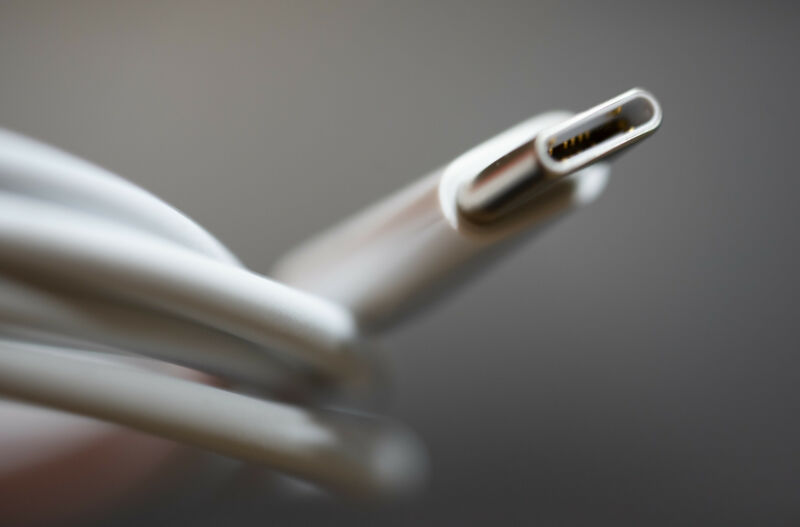
Enlarge / This Macbook Pro charge cable is only rated for 100 W power delivery—but forthcoming USB-C PD 2.1 cables will be able to handle more than double that. (credit: Tony Webster / Flickr)
Yesterday, Benson Leung—Google engineer and intrepid USB-C cable tester—dropped the news on Twitter that a new USB-C cable specification has been released. The new spec allows for considerably heftier charging rates between compliant USB-PD devices.
Relatively minimal changes

Bumping allowed voltage up from 20 V to 48 V means greater potential for damage due to arcing as cables are unplugged. (credit: USB 3.0 Promoter Group)
Although Leung points out that the new specification has been under development for two years, very little has changed. Comparing the USB-C 2.0 standard to today’s 2.1 standard, the optional new Extended Power Range (EPR) specification—which bumps maximum voltage up to 48 V, sufficient to deliver 240 W at 5 A—seems to be by far the largest change.
From a consumer’s perspective, the physical standard hasn’t changed—USB-C type 2.1 devices will plug into USB-C type 2.0 ports, and vice versa. Under the hood, the standards on the midplate have gotten stricter—a new paragraph has been added mandating that pins A4-A9 and B4-B9 (power, power delivery, and legacy USB 2.0 support) must not short to ground during connector mating.





